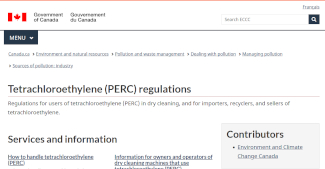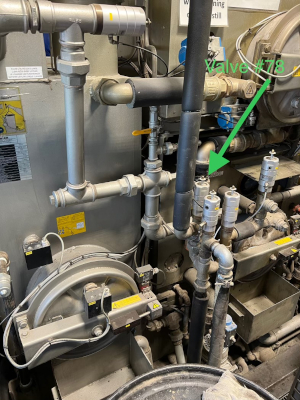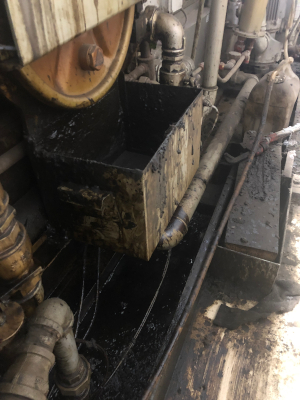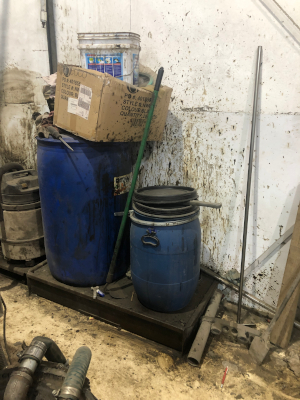Under the Microscope


He’s standing at your front counter. “We are with Environment Canada and we are here to inspect your plant,” he says.
Words to make your heart skip a beat or two. And then you notice his sidearm. At that point you begin to realize the gravity of your next few words. What do you do?
Take a deep breath
I’ve never been inspected by Environment Canada. I am not an expert on their procedures, but I’ve heard a few things over the years. We don’t sell/store or dispose of perc, so we don’t have to deal directly with them.
Most dry cleaners try hard to be compliant, but you need to be able to communicate your compliance in a few short minutes. That inspector needs to have confidence that you know what the regulations are, and that you are upholding them.
To further complicate things, the inspectors have to monitor many different industries. They may not fully understand your machine or procedures, so you need to be able to communicate what you do and why.
Is your plant compliant?
Have you read the perc regulations? There are many pages, but they do try to make the regulations understandable to the layman. If you haven’t read them, then I would suggest that today would be a good day to do that. The fines for non-compliance can be rather significant.

The big things to look out for are drain plugs for floor drains, secondary containment that is the correct capacity for all solvent or waste, and a dry cleaning machine that is operating properly (no leaks). This is assuming that your machine is compliant with the current regulations.
There are regulations regarding perc consumption, refrigeration, etc., on machines. I would assume that all the machines in use now are compliant with the regulations.

What is the quickest way to judge whether your plant is compliant? Is it clean? When the inspector looks behind your machine, is there sludge splashed on the wall? Is the spill tray half full of goo? That tells him a lot about you and your plant. If everything looks good, he probably won’t look as closely at things.
I’m not saying you can pull a fast one on the inspector. I’m just saying that if you work hard at keeping things clean, you probably work just as hard at being compliant.
Is your paperwork in order?
The other big component to compliance is paperwork. You need to understand a key component in compliance: If it isn’t documented, you never did it!
If you are lax about sending in your Annual Report, you are probably lax about being compliant. Why wave a red flag if you don’t have to?
You must be able to produce the following at a moment’s notice: manifests for waste shipped, invoices for perc purchase, and any other records you have. It would also be good to have documentation on repairs done to your machine, the Safety Data Sheet for perc, and even poundage charts.
Do you have written documentation on staff training? Do your staff know what to do in the event of a spill? Where are the perc masks, gloves, absorbents, etc.? Have your staff members ever worn a respirator?

Put your procedures in writing. Document the training that you have done. The more paperwork you can produce, the better your inspection will go.
Positive things you can do
How do you prepare for an inspection? You don’t. You have no idea if they will ever come or not. What you prepare is procedures and plans to handle things safely when everything is going well and also when problems arise. You need to run your business in a way that is good for the environment and good for your people.
There should not be any perc waste that is not in a sealed container. So clean the sludge bucket and the sludge scraper after they have been used. Most of our plants now put a plastic bag in the sludge box. Once they have finished scraping the still, the bag (and sludge) go into the waste barrel, and the sludge bucket stays clean.
Do you have spill drills to train your staff? What if they have a problem when you aren’t there? Do they confidently know what to do? Do they understand the difference between cold solvent dripping from a valve and hot perc dripping from the still door gasket?

Do they know who to phone when there is a problem they can’t handle? When do you phone the fire department – with a 1-litre spill, a 30-litre spill? Who is in charge in an emergency?
These questions can have significant implications for your business if there ever was an emergency.
Get with the program – you can’t beat the government
As much as you may hate them, the perc regulations have brought positive change to our industry. Yes, we have lost some operators and some machines. But that was probably good.
The inspector is not out to get you. He is just trying to do his job. If he doesn’t understand your machine, explain it to him. And work with him to make our industry a safer place for our people and the environment.
This is not an exhaustive guide – I’m just sharing a few things that I’ve learned over the years. You say you care about the environment. Prove it!
Kevin Marois founded Calgary-based Integrity Mechanical in 2003 to service plants in western Canada. He writes on issues related to equipment, its purchase, maintenance and use. You can reach Kevin at office@imicanada.ca or via his website www.imicanada.ca






